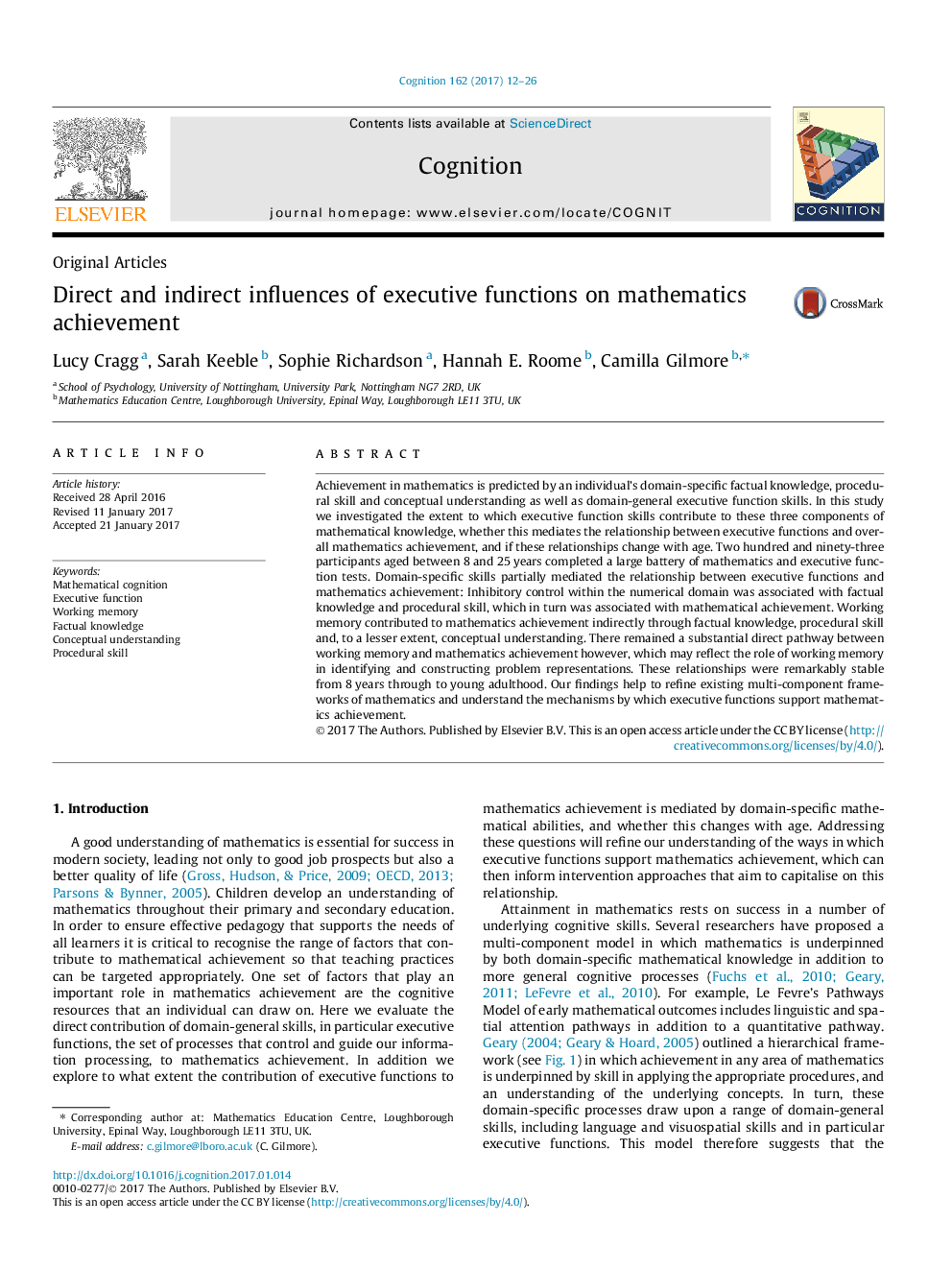ترجمه فارسی عنوان مقاله
تاثیر مستقیم و غیرمستقیم عملکرد اجرایی بر موفقیت ریاضیات
عنوان انگلیسی
Direct and indirect influences of executive functions on mathematics achievement
| کد مقاله | سال انتشار | تعداد صفحات مقاله انگلیسی |
|---|---|---|
| 123446 | 2017 | 15 صفحه PDF |
منبع

Publisher : Elsevier - Science Direct (الزویر - ساینس دایرکت)
Journal : Cognition, Volume 162, May 2017, Pages 12-26
ترجمه کلمات کلیدی
شناخت ریاضی، عملکرد اجرایی، حافظه کاری، دانش واقعی، درک مفهومی، مهارت پردازشی،
کلمات کلیدی انگلیسی
Mathematical cognition; Executive function; Working memory; Factual knowledge; Conceptual understanding; Procedural skill;

